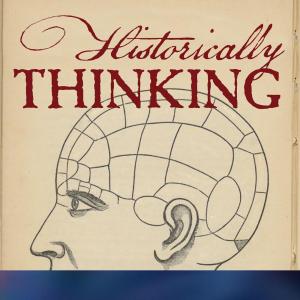Historically Thinking

Episode 371: Forming National Character
How can a new nation establish itself amidst the networks and intrigues of a very old part of the world, while at the same time trying to be different from everyone else? Are these inherently contradictory aims? And how can either–or none–of these objectives be achieved by civil servants who are engaging in, at best, on the job training? These are some of the questions that are prompted by studying the First Barbary War, fought by the young United States from 1801 to 1805 along the coast of North Africa. Far from being a story simply of simple and straightforward naval derring-do, it is one of strategic ambiguity, diplomatic finesse, and the ideological aspirations of a new nation set against the backdrop of world war and millennia old customs. With me to discuss the First Barbary War is Abby Mullen, Assistant Professor of History at the United States Naval Academy. She is also the impresario of not one but two podcasts: Consultation Prize, a limited run series about US diplomacy from the ground-eye viewpoint of American consuls, and Big If True, a podcast for kids which is co-hosted with her daughter. But today we are (mostly) talking about her new book To Fix a National Character: The United States in the First Barbary War, 1800–1805. For Further Information William Eaton is the subject of the portrait above; for a little something about the "Burr Conspiracy", in which Eaton may have participated and against which he then gave evidence, see Episode 344 As mentioned in the podcast, Daniel Herschenzohn in Episode 95 explained the complex economy in the Mediterranean that centered on the redemption of prisoners. But the only time that consuls have shown up was very recently, in Episode 359. Here's a link to Abby Mullen's Consolation Prize, a limited series podcast "about the history of the United States in the world through the eyes of its consuls." And one to Big If True, "a podcast for kids exploring the truth about big things" co-hosted with her daughter, but which is now alas lapsed into a podcast doze. For on the American wars on the Barbary coast, see Frank Lambert's The Barbary Wars: American Independence in the Atlantic World; for a now very old book full of swashbuckling derring-do, and not very many strategic complications, see Fletcher Pratt, Preble's Boys: Commodore Preble and the Birth of American Sea Power.






 Visit Podcast Website
Visit Podcast Website RSS Podcast Feed
RSS Podcast Feed Subscribe
Subscribe
 Add to MyCast
Add to MyCast